
We kindly inform you that, as long as the subject affiliation of our 300.000+ articles is in progress, you might get unsufficient or no results on your third level or second level search. In this case, please broaden your search criteria.


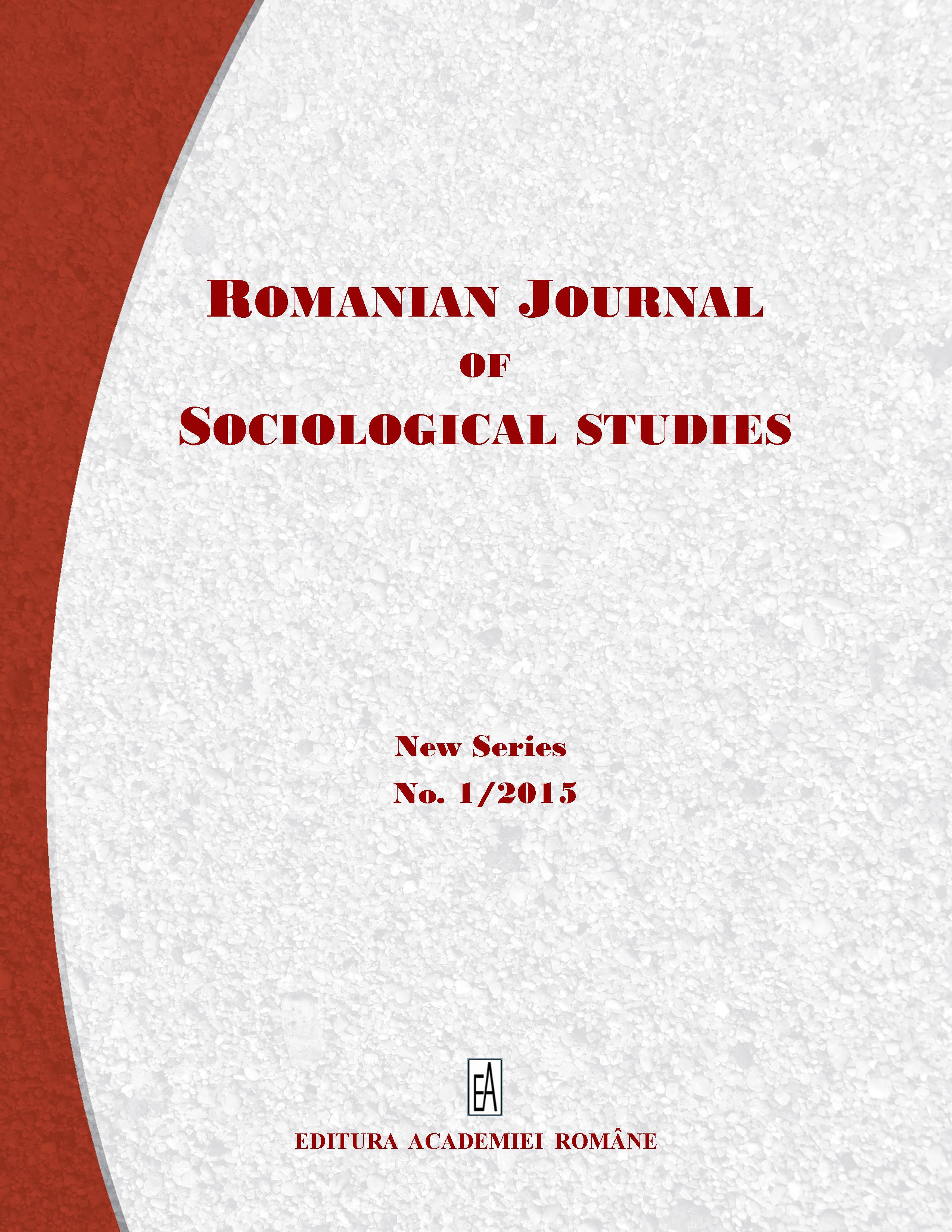
Despite the geopolitical limitations and the prohibitive status of a middle power, during the past few years, the Republic of Korea has started to intensively make use of soft power strategies in order to boost its global image. Its strategy focuses primarily on cultural diplomacy, but also takes into account the international contribution aspects. Therefore, due to its successful development experience, the country tries to export its model through various development assistance policies and become a mentor in this new field. The previous and current administration shifted South Korea’s interests and focused not only on cultural diplomacy, but also on international cooperation. Therefore, as a former aid recipient, Korea adopted the same mechanisms previously used by its former donors, concentrating on the concessional loans and tied aid in order to boost the image of the state and increase its desirability towards the foreign public and ultimately play an important role in supporting development in developing countries. Overall, the paper investigates the aid allocation and offers clarifications of the linkage between the ‘Global Korea’ strategy and the official development assistance policies (ODA). Thus the study highlights the deficiencies of the current model, and at the same time, advocates for untied aid and a noticeable enhancement of grants allocation. Additionally, bearing in mind the strong regional bias and the obvious contradiction with the objectives of a global strategy, an adjustment concerning the distribution of funds based on regional equity is also mandatory. Therefore, South Korea can stand as a truly Global Korea on the international arena.
More...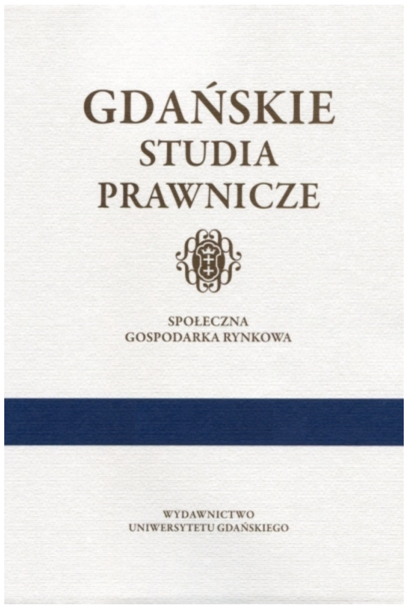
The origin of Scandinavian parliamentary systems (in Denmark, Sweden and Norway), which have been formed evolutionary, can be traced in the gradual emancipation of the government (initially treated as the group of trusted advisers and assistants of the monarch) from the control of the monarch and binding their political profile with the current composition of the parliamentary majority .It is worth noting that the nineteenth-century constitutional acts (Swedish Act on the Form of Government of 1809, the Constitution of Norway of 1814, which is still in force,and finally the Constitution of Denmark of 1849) did not petrify noticeably the dependence of the government and its policy on the parliamentary factor. The ,,parliamentarization” of the system of government mainly proceeded praetar legem fondamentalem .Creating a clear parliamentary majority was difficult because of the complex internal structure of national parliaments. Its simplification in the course of parliamentary reforms was a factor contributing to the ,,parliamentarization” of the form of government. It was aimed to facilitate decision-making processes and to take a coherent stand on important issues of state policy against the monarch and the government. In Norway, there was also an important national factor. While the Norwegian Storting was perceived by the Norwegian as the representative of the Norwegian people, the king, who was residing in Stockholm surrounded by predominantly Swedish environment and reigned till the break of the personal union in 1905 was treated in Norway as an external factor, in a sense a stranger. The ,,parliamentarization” of the system of government in Norway was - at the same time - a process of the ,,Norwayization” of the government authority. In a way, it explains its earlier origin - for the cut-off date the events of 1884 shall be considered.In Denmark and Sweden, the actual ,.parliamentarization” of the system of government became stable immediately after World War I (its reflection can be already seen in the Danish Constitution of 1915). The later relatively stable prevalence of social-democratic parties in Sweden and Denmark (and to some extent also in Norway) influenced the political homogeneity of the majority in the parliamentary terms of office in Denmark, Sweden and Norway. It also resulted in the stability of the ruling elites supported by consolidated parliaments. The real impact of the monarch on long-term processes, but also the current policy (regardless of respect for the institution itself) was gradually decreasing. This trend was revealed praeter legem and only in Sweden it was expressed in the new Act on the Form of Government of 1974.
More...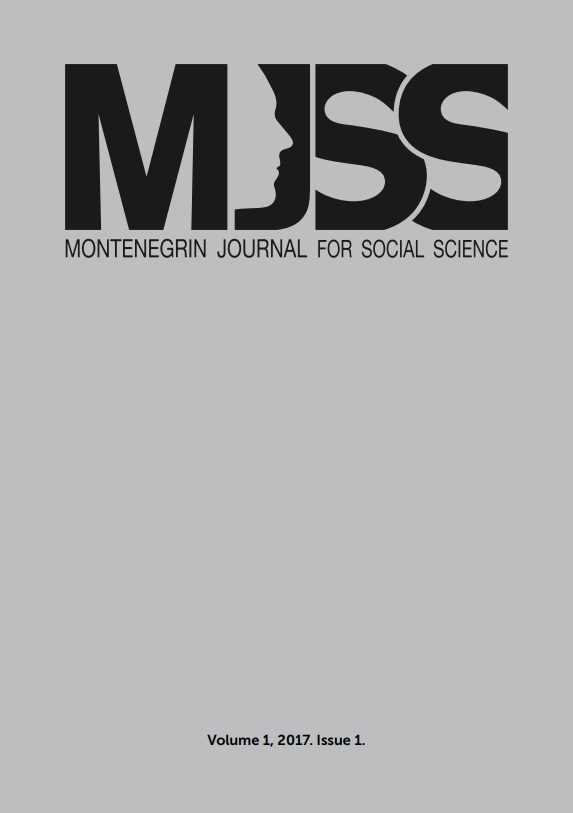
U izdanju Matice crnogorske 2015. godine izašla je knjiga pod naslovom „Narativi o identitetu”, izabrane studije o crnogorskoj istoriji, autora Františeka Šisteka, predavača moderne istorije Balkana na Fakultetu socijalnih nauka Karlovoga univerziteta u Pragu. Šistek skreće pažnju crnogorske javnosti već 2009. godine, kada je promovisao prvu monografiju o Crnoj Gori „Naša braća na jugu” u kojoj je analizirao i saopštio češke predstave o Crnoj Gori i Crnogorcima od 1830. do 2006. godine. Inače, to je tema njegove doktorske disertacije. „Narativi o identitetu” čine odabrane studije koje se bave pričama o identitetu (posebno nacionalnom i religijskom) i instrumentalizacijom istorije u Crnoj Gori od XIX vijeka do danas. Izbor teme, motivi i podsticaj nesumljivo se nalaze u njegovom dugogodišnjem interesovanju za Crnu Goru. Autor istražuje predmoderne identitetske obrasce u Crnoj Gori prve polovine XX vijeka i pokušava da ih smjesti u širi društveni i politički okvir. U knjizi se nalazi nekoliko studija koje povezuju interes za narative o etničkom i vjerskom identitetu i interpretacije moderne crnogorske istorije, kao i jedan članak posvećen problematici manjina. Neke od studija su prevodi ranijih radova posvećenih Crnoj Gori, koji su u posljednjih desetak godina bili objavljeni u nekoliko zbornika i stručnih časopisa na engleskom i češkom jeziku. Svako od poglavlja čini jednu integralnu cjelinu, tematski zaokruženu, koja se može posmatrati zasebno, a sve zajedno su odraz njegovih razmišljanja o najrazličitijim fenomenima i pitanjima identiteta.
More...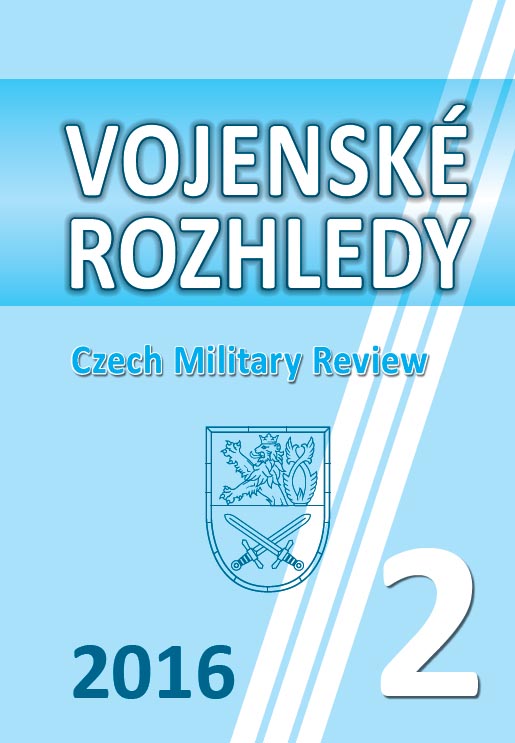
This article discusses political and military issue of Islamic State, since establishment of the anti-IS alliance in summer 2014 until March 2016 in Iraq and Syria. The article describes each step made during this period separately or in alliance, while the terrorist attacks in Paris are considered as a turning point. That is the reason why the article is the comparison of French policy before and after the attacks. Furthermore, the crucial part is to resolve Syrian crisis in which France is actively involved in order to settle down the events in Syria and transform it into democratic country without President Assad.
More...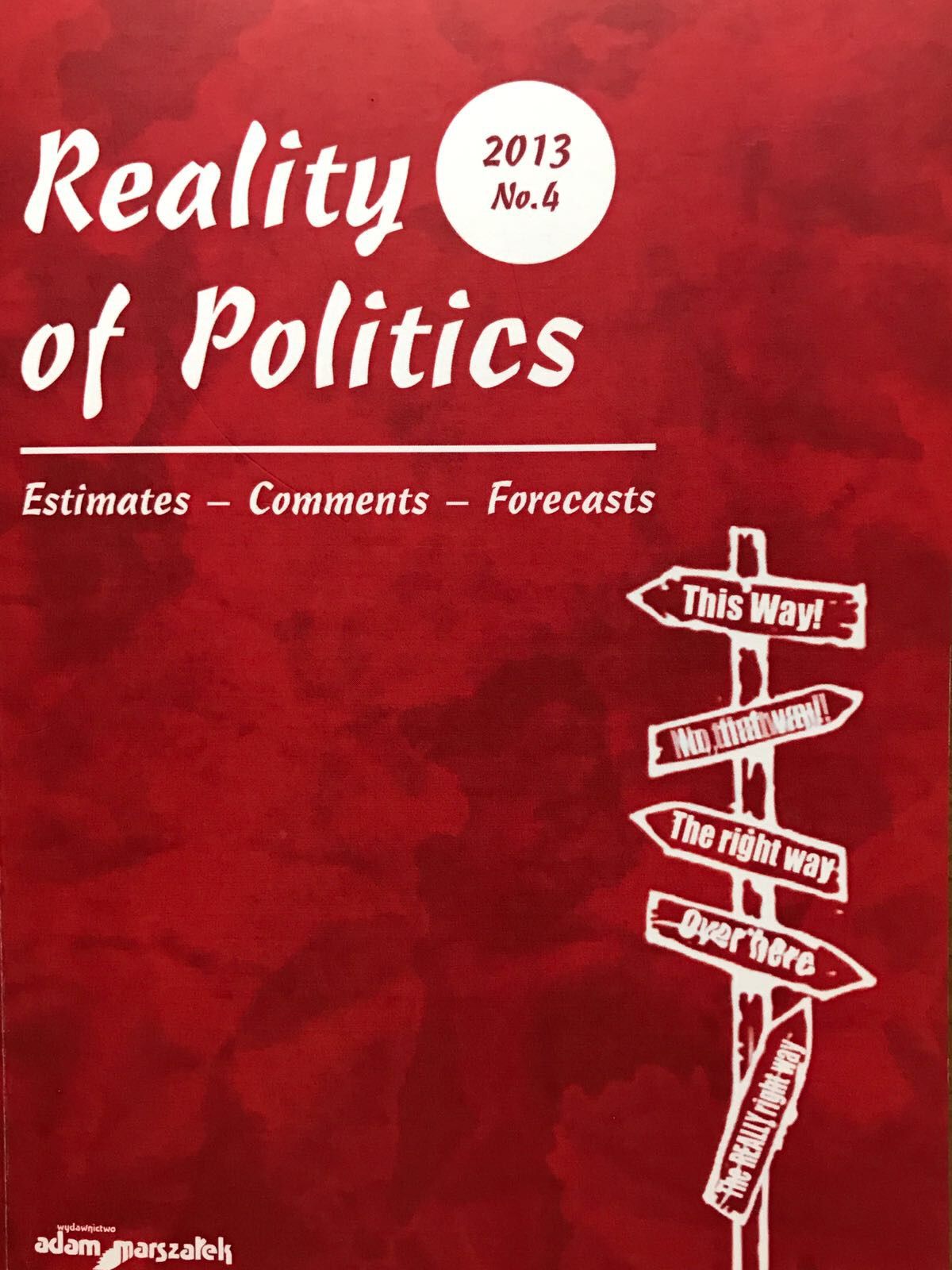
In recent years, the South China Sea area has become the arena of competition between the countries of Southeast Asia that set up claims to maritime areas and the islands, and, all the more, want to control and exploit what can be found under the seabed, namely the deposits of oil and gas. Th e situation in the area cannot even be resolved by the United Nations Convention on the Law of the Sea (Montego Bay, 1982). Apart from the resources found in the sea and under the seabed, this body of water is an important shipping route, which makes it a strategically signifi cant area for each of the countries located there, or those whose interests involve the South China Sea. In this work, I describe the current situation in the waters of South China Sea: whether the countries bordering it strive for confl ict or just secure their interests. It turns out each of the states will set up demands to the islands on this sea and especially to everything that lives in the sea and is to be found under the seabed. Minor, and also more signifi cant incidents will happen, but it does not seem likely that any serious open conflict between the states of the region will break out in the close future. None of the countries pursues it and they do everything they can to maintain the status quo.
More...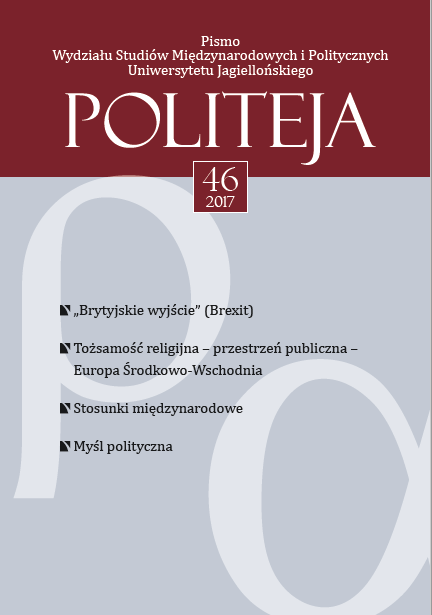
The aim of this paper is to understand the meaning of the Star Ferry and Queen’s Pier locations for the process of shaping Hong Kong identity and why unlike in previous similar cases, the latest removal of the Star Ferry and Queen’s Pier met with resistance from Hong Kong citizens. Looking at Piers of the saga from the historical perspective, it is found that spatial practice of the pre‑Second World War (WWII) piers was a mirror of a colonial and racially segregated city. The public space in the commercial heart of Hong Kong that housed the previous generations of piers was not accessible to the Chinese community, thus denying them rights to the city. It was only after WWII when the Government carried out further reclamation to meet the needs of an industrialising economy that inclusive public spaces were conceived in the commercial heart, enabling the general public to enjoy the city. Therefore when the Government decided to remove this very first public space in the political and economic heart of the city to conceive further reclamation for restructuring the economy, the citizens were determined to defend it. Piers were a physical and mental border of the two worlds, the edge of the city. With the social changes after WWII they were transformed into symbolic centres with a crucial meaning for shaping of the Hong Kong identity.
More...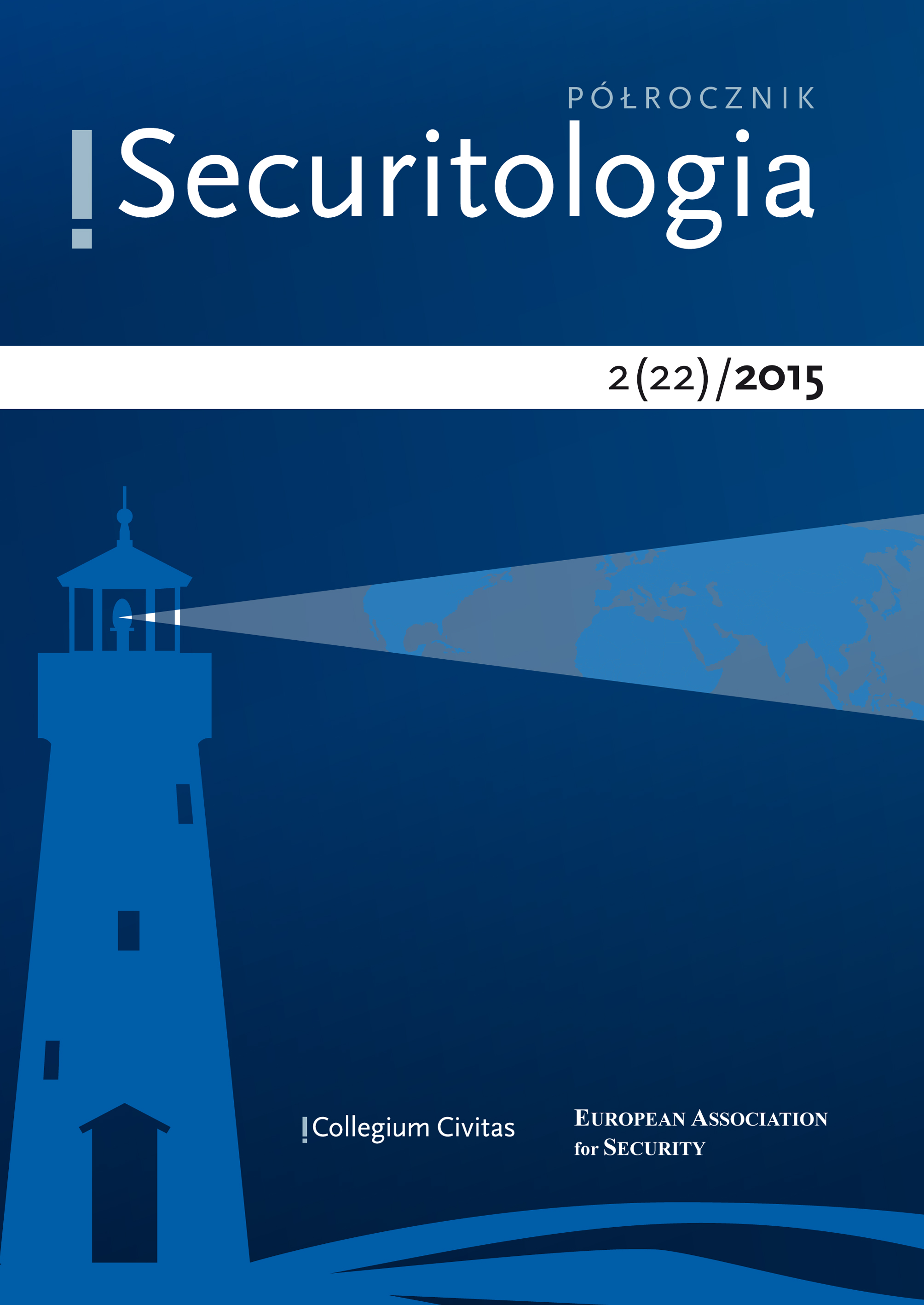
The essence of the article is the analysis and description of social problems accompanying the existence of the Turks and Poles on exile. There is shown a short history of mutual relations, the size of the Turkish population in Poland, their national identity and elements of cultural assimilation in the foreign environment related to their social and economic lives. Particular emphasis is put on presenting the Turks and Poles in a foreign cultural environment.
More...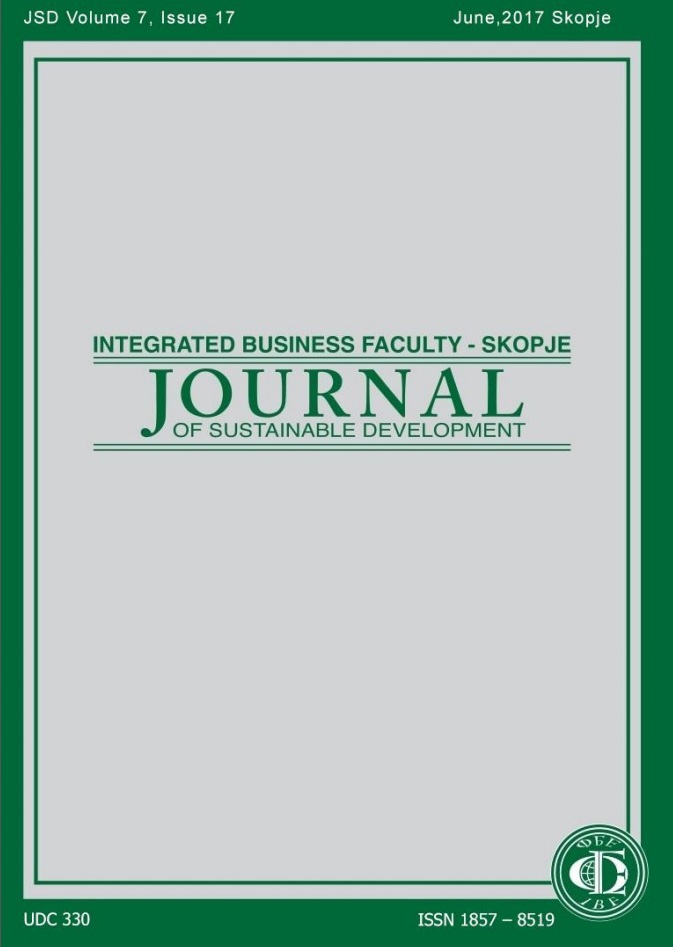
The paper focuses on the influence of the institutions determinate of competitiveness in emerging and EU countries. Based on survey of literature including Scott’s (2001) idea of three institutional pillars: regulatory, normative and culturalcognitive pillar, we constructed framework of institutional competitiveness index. Our framework also offers a modified methodology for the estimation of a theoretically grounded and empirically validated measure of the institutional competitiveness which is expected to contribute to the development of literature for emerging countries. This paper captures interrelated drivers that collectively represent each of these pillars and estimate this framework using multiple data sets covering 22 emerging economies and 14 EU countries over the period 2006-2014. The findings indicate and confirm a positive and separate influence between the institutional mechanism and competitiveness as both are very much interrelated and they depict the general level of efficiency of a particular country. While the institutional mechanism in emerging nations is developing, results for the EU countries present positive and significant relationship between rule of law and national competitiveness. These insights might be useful in the formulation of improved national economic policies and institutional reforms towards attainment of national competitiveness.
More...
This article has two parts: 1) analysis of the concept of sovereignty and proposal of some ways to its understanding; 2) analysis of the socio-political area of human life, where we actually exist in the post-sovereign state. In the first part the author discussed the history of the concept of sovereignty (Middle Ages, J. Bodin, T. Hobbes, G.W.F. Hegel, J. Maritain) and its main senses (sovereignty as a form of absolute, constant and sacred power; sovereignty as full autonomy of authority in relation to different parts of society, and its supremacy). In the second part the author analyzed the political system of the state in the era of globalization and integration and its consequences (foundation of supranational communities and structures; benefits; imposing rights and standards of legal solutions; limiting the right of veto; adoption of a common currency and citizenship; lack of some political competences). As a result, sovereignty becomes merely a useful fiction, and many people believe that they actually live in the post-sovereign state.
More...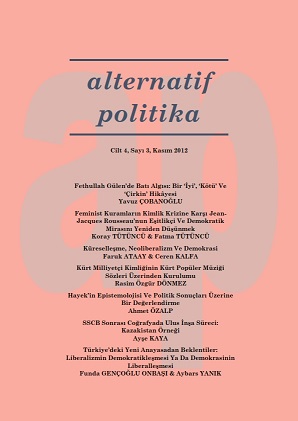
The disintegration of the Union of Soviet Socialist Republics (USSR) in 1991 marked the beginning of a new era in terms of both the political history of the world and the political geography of the Eurasia. Fifteen new states emerged in the geography where the dispersed USSR was located, an area ‘once ruled from Moscow as the center of a large field, [where] some had never become independent actors of international politics in the modern era’ (Aydın, 2005: 245). After gaining their independence, these states began to work in accordance with ‘building an appropriate nation for their state’. In this context, nationbuilding efforts in Kazakhstan will be discussed by taking into consideration the historical and international dynamics in the post-Soviet period in light of nation-building theories. In other words, the transition period from the Soviet imperial nation concept to the modern nation process in Kazakhstan will be analysed.
More...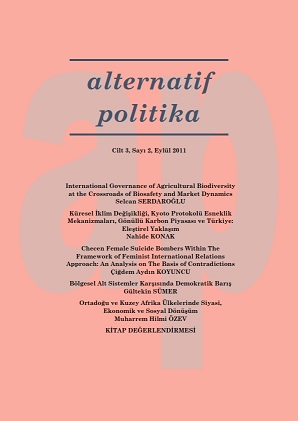
Fall of the regimes in Tunisia and Egypt have impacted all the other Arab countries and commenced a period of change in the Middle East and North Africa. Alterations in the internal dynamics of the region and in the perceptions and future projections of the western countries have taken effect in this change. Identity politics which was implemented after the collapse of the Ottoman Empire and economic troubles have taken place among the leading motives of the latest developments. The rapid increase of young population and poverty in the region, police state practices and human rights abuses, etc. have constituted the regional dynamics of the change. The fact that the radical movements in the region attained dangerous dimensions and increase in the needs of the western countries to liberal markets and investment areas have led the western countries to call for democracy for the countries of the region. In the coming period, quest for qualified democracies and interaction among the countries of the region will increase; activities of Egypt and Turkey in the region will reach to an ultimate level, Israel will be forced to review its current policies, relations between the West and the countries of the region will be redefined.
More...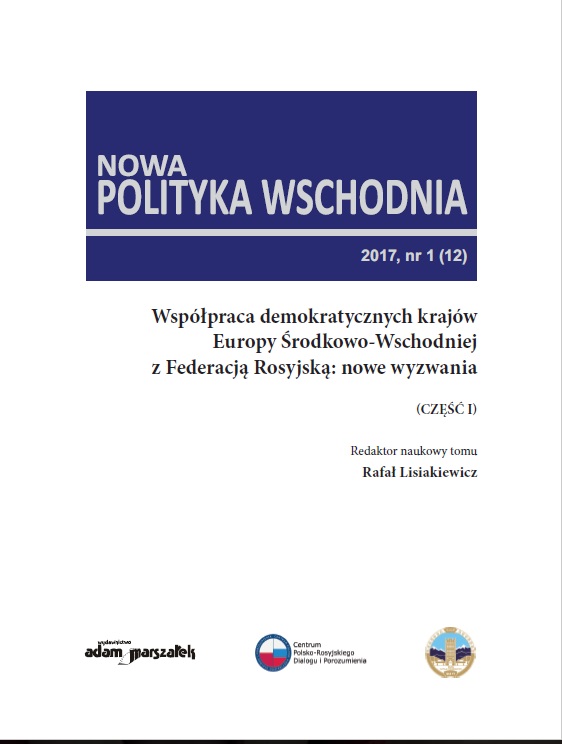
The article presents an analysis of the problems and prospects of relations between Russian Federation and Central and Eastern Europe (CEE). These relationships are discussed in broader political context of Russia's relations with the European Un-ion. The author believes that in conflict situations the both parties are responsible. As an optimal strategy the author examines the possibility of linking the integra-tion processes in the Eurasian region – the so-called "integration of integrations", that can become a framework for interfacing the national interests of Russia and the EU's interests. A special role in the normalization of relations in Eurasia the CEE countries are devoted to play – CEE may become a bridge between Russia and Western Europe
More...
The author addresses an important question of transformation in the field of for-eign policy priorities made by Russian Federation, indicating both the causes, as-sumptions and ad hoc and prospective objectives of the newly announced strategy, which is a retreat from the West and the intensification of relations with the coun-tries of Asia. This was largely a consequence of the crisis in the relations with the West, due to the annexation of the Crimea and the conflict in the east of Ukraine. However, explaining the motives of this policy, the Russian side tried to ignore the true impact of the Ukrainian crisis. As a whole, this new national strategy has been dubbed PovorotnaVostok. This strategy should boost economic growth, and above all play the role of the one of key instruments restoring Russia’s lost posi-tion as a global power. More broadly, the Russian shift towards Asia is based on the assumption that the long-term factor affecting the international situation will be strategic competition between China and United States, and that Asia in the near future will not be able to create of a coherent system of security. With this in mind, the Kremlin is trying to find a place for the realization of its vision of a new multipolar world order and actually is trying to play one state against another one. The leaders of Kremlin are of course aware of the shifting of the global economic balance of power towards Asia – Pacific, and they understand that Russia’s eco-nomic integration with the region has an essential importance for successful long-term development
More...
The essence of Russia’s relations with Belarus after the end of the 20th century boils down to a specific kind of balance. Thanks to its presence in the institutional forms of close cooperation such as the CSTO, the Union State or the Eurasian Economic Union Minsk enjoys the openness of Russian market and very low prices of im-ported resources (especially crude oil and gas). What Moscow receives in return can be classified as a sort of intangible goods: greater prestige and a „friendly he-gemonic” position in international relations. The balance of the game falls in favor of Lukashenko who takes advantage of his country’s location between the Russian Federation and the EU: Moscow is permanently blackmailed with the possibility of Minsk’s hypothetical turn toward the Western partners.
More...
Modern states use any means necessary that are provided by foreign policy. At this point, states more often use new means to implement foreign policy – there are, in a broad sense, soft power policies – public diplomacy and promotion of state’s international interests. While tasks of traditional diplomacy that are con-nected with state’s political security and military security have to be implemented by state’s central organs, however, all the rest can be and are implemented by de-centralized self-government authorities. These new forms of diplomatic activity developed, especially, after the Cold War ended and can be classified as paradi-plomacy i.e. the involvement of sub-national actors (regions) of the national states in international relations. Russian regions, including the Russian Far East, estab-lish these forms of activity. However, legal conditions are quite alike, the practice between regions differs from each other. The general conclusion, which emerges from the analysis, points to the fact that many decisions concerning paradiplo-macy are made by federal authorities and the level of regional authorities’ activity in new millennium has decreased comparing to the 1990s. This conclusion also concerns the Russian Far EastThe external surroundings of the Russian Far East – Asia-Pacific region is ex-tremely active international actor. Russia looks with more concerns on the region and sees itself a strategic approach for further international activities. This ap-proach is also important due to the Russian Far East international activity, how-ever, any attempt at adding this region to East Asia integration concepts is inef-ficient. Problem is noted and the goal of Ministry of Foreign Policy of Russian Federation is to incorporate regional diplomacy to traditional diplomacy. In ac-tivity of regions is still ample potential, which is clearly noticeable. In 2013, the 5th program – The Far East and Trans-Baikal Socio-Economic Development Strat-egy to 2025 was adopted. However, there is a concern that this program may suffer the same fate as other unrealized programs to exploit potential and development of this region, if a few requirements, which are listed in paradiplomacy theoretical models, are not accomplished e.g. the strengthen of regional authorities.They are better in defining its needs and opportunities but they should effi-ciently cooperate with inhabitants living in these regions. However, the require-ments are greater influence on their choice, greater trust and identifying with ac-tivities of authority
More...
Foreign activity (paradiplomacy) of local governments is one of the elements of Polish foreign policy and plays a special, positive role in the process of Polish in-tegration with the European Union. This paper presents the results of the inves-tigations concerning foreign activity of Polish local and regional governments with Russia. In particular, there is intensive cooperation with the Kaliningrad re-gion, the only region bordering Poland and refers to the neighboring provinces of Warmia and Mazury and Pomorskie. Studies have shown, however, that 11 out of the 16 Polish provinces signed agreements with other regions of Russia and only 2 have no cooperation
More...
Solidarity as one of the main values of the European Union is also recognized among the guiding principles of the EU asylum policy. In the period of the mi-gration crisis, this principle was the most important for the EU Member States and very difficult to implement. The purpose of this article is to analyze the con-cept of solidarity, as enshrined in the Lisbon Treaty, as well as in the positions of the Member States and EU institutions. The article highlights the current debate, initiated by the Visegrad group under the Slovakian Presidency in the Council, around the proposed “flexible” or “effective solidarity” in asylum policy. Thus, the author contributes to understanding the ways, problems and prospects of ref-ugees’ relocation, as well as the upcoming reform of the Dublin system. Based on the study of the summits conclusions, Council meetings in its various for-mats, the EU leaders’ statements, the author considers that divergence not only of the Member States positions, but also those of the EU institutions on the specific forms of participation in managing migration and asylum could entail more frag-mentation and differentiation within the Union. At the same time, the author re-veals the contradiction in the Visegrad countries’ position: while dreaming about re-nationalization of asylum and engaging in confrontation with the Commis-sion, the CEE countries by no means intend to introduce and maintain border control within the Schengen area.
More...
Geo -economics is an approach that, in general, looks at the links between politics and economy in the international arena. This article is an analyses overview of the presence of geo-economics strategy in the Polish-Russian relations. The author focuses particularly on the problems of investment, trade and energy.
More...